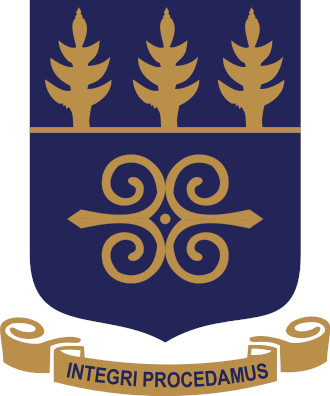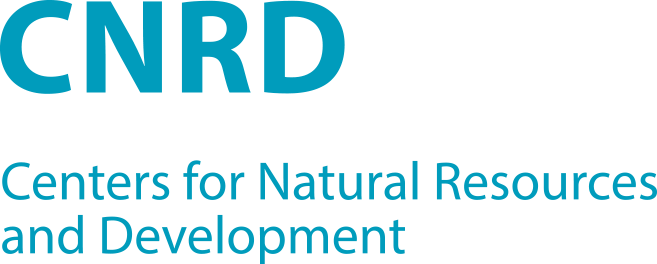University of Ghana, Accra, Ghana

The University of Ghana, the premier and largest university in Ghana was founded as the University College of the Gold Coast by Ordinance on August 11, 1948, for the purpose of providing and promoting university education, learning, and research.
The University of Ghana is run on a collegiate system and comprises the following colleges: College of Basic and Applied Sciences; College of Education; College of Health Sciences and College of Humanities. In addition, the University has several research institutions and centers for learning and research.
As part of its vision to become a world-class research-intensive institution, the University of Ghana has identified four priority areas where the University will focus and promote international collaboration in research initiatives to enhance the University’s research output. These research areas are:
- Malaria Research
- Trans-disciplinary Research into Climate Change Adaptation
- Enhancing Food Production and Processing
- Development Policy and Poverty Monitoring and Evaluation
The University aims to produce the next generation of thought leaders to drive national development. Through our research institutes and other centers of learning and research, faculty members are involved in studies that support policy-making for national development, often in collaboration with other international institutions. Units relevant to CNRD include;
- Animal Biology and Conservation Science Department
- Plant and Environmental Biology Department
- Biotechnology Research Centre
- Biochemistry, Cell, and Molecular Biology Department
- Centre for Remote Sensing and Geographic Information Systems
- Forest and Horticultural Crops Research Centre
- Geography and Resource Development Department
- Institute of Applied Science and Technology
- Institute for Environment and Sanitation Studies
- Marine and Fisheries Science Department
The student population is over 38,000 made up of students enrolled in our regular programmes, sandwich programmes, and distance education as well as students from affiliate institutions. Our growing number of international students come from over 70 countries to join either our regular undergraduate and graduate programmes, or enroll in our study abroad and other special programmes designed for international students.
Institute for Environment and Sanitation Studies
The Institute for Environment and Sanitation Studies was created in response to several drivers, enablers, and outcomes identified as key to the nation’s development at the request of the government of Ghana. Ghana’s population is increasing rapidly, contributing to urbanization which creates major challenges such as urban planning as well as improper disposal of both solid and liquid waste. Other challenges such as land degradation, including illegal mining, deforestation, and desertification, as well as pollution of our water bodies (rivers, lakes, streams, wetlands, etc.) and coasts are resulting in habitat destruction, loss of biodiversity, and global climate change. The Institute for Environment and Sanitation Studies (IESS) will employ interdisciplinary and participatory approaches to train future managers, who will contribute to the protection, management, and development of the country’s natural resources in line with the Institute’s mission statement: “To meet the nation’s needs for broad-based education, training and research in the science, policy, and management of environmental and sanitation processes in the wider African and global context.” It is our medium-term vision that “Within the next 10 years, IESS will evolve into an institution that is a “Centre of Excellence” for environmental and developmental issues.” To achieve this, we will be proactive in seeking collaborations with appropriate partners, including private industry and civil society as well as in the acquisition of funds to support our research agenda.
The Institute as part of its teaching and training mandate runs the following programmes:
1. MPhil Environmental Science
2. Ph.D. Environmental Science
3. MPhil Sustainability Sciences
4. MPhil Sanitation Studies



Research Projects in Natural Resources Management
- Special Treat Project
- Building Understanding of Climate Variability into Planning of Groundwater Supplies from Low Storage Aquifers in Africa (BRAVE) Project
- Adaptation at Scale in Semi-Arid Regions (ASSAR) Project
- Utilization of Organic Waste to Improve Agricultural Productivity (UOWIAP) Project
BSc, MSc, and Doctoral Programs relevant to CNRD
Activities in capacity development relevant to CNRD
- Fox International Fellowship Programme
- UG ORID – Research Affiliation Programme
- ASSAR Internship Programme
Pool of Experts
| Ecology; Aquatic Resources Management; Waste Management; Biodiversity Management; Environmental Impact Assessment; Water and Sanitation; Organic Waste Management; Environmental Education | Annang, Ted Yemoh (Dr.) | |
| Forest and Wildlife Resources Management; Nature Conservation and Local Livelihood Conflicts; Land Use/Cover Change in the Volta Basin, Ghana; Climate Change Policy; Mangrove Ecosystems Management | Ayivor, Jesse Sey (Dr) | ; | |
| Soil Conservation, Pollution Control and Remediation; Agrochemical Transport in Porous Media; Climate Change Impact on Landuse/cover; Soil Tillage; Soil Carbon Dynamics; Soil Nutrient Management | Darko, Daniel Amoako (Dr) | ; |
| Climate Change Impact Assessment, Adaptation and Poverty Reduction; Climate Change and the Urban Poor; Sanitation; Site Specific Nutrient Management; Soil Degradation and Environmental Pollution; Land-use/Land-cover Change on Soil Moisture, Runoff and Nutrients | Fosu-Mensah, Benedicta (Dr) | ; |
| Mangroves and Coastal System; Environmental Governance; Water Resource Management; Biodiversity; Policy | Gordon, Chris (Prof) | ; |
| Water Quality and Water Resource Management; Pesticides and Heavy Metals in Environmental Matrices; Climate Change Impact and Water Resources Utilization | Koranteng, Samuel Senyo (Dr) | ; |
| Climate Change; Environmental Education and Policy; Human-Environment Interactions; Integrated Coastal Zone Management; Sanitation and Environmental Health; Sustainable Tourism | Lawson, Elaine Tweneboah (Dr) | ; |
| Landuse Inter-linkages with Aquatic Systems; Coastal Science; Climate Chanage Adaptation; Climate Change and Governance | Mensah, Adelina Maria (Dr) | ; |
| Pollution and Pollution Control in Inland Waters; Wetlands Ecology and Management; Lake and Reservoir Limonology and Management; Large Dams Impact on Ecosystems functioning and Community Livelihoods; Environmental Governance and Policy Research; Industrial Ecology and Green Initiatives; Environmental Management Systems (EMS) | Nukpezah, Daniel (Dr) | ; |
| Rural Resources; Local Markets Domestic Trade; Urban Development; City Food Supply Systems; Community Livelihood (Dam-affected areas); Climate Change Adaptation | Ofori, Benjamin Dankyira (Dr) | ; |
| Land-use/cover dynamics and sustainable management; GIS and Remote Sensing; Climate Change; Landuse analysis and modeling; Hazard Risk Assessment and Early Warning Systems | Pabi, Opoku (Dr) | |
| Public Health; Water and Sanitation; Parasitology; Epidemiology; Environment and Parasites of Wildlife | Yirenya-Tawiah, Dzidzo (Dr) |
Project Leader
Project Coordination
Dr. Dzidzo Yirenya-Tawiah
Senior Research Fellow
https://iess.ug.edu.gh/people/faculty/prof-dzidzo-yirenya-tawiah
Link
Location
Legon Boundary, Accra, Ghana
You are currently viewing a placeholder content from Default. To access the actual content, click the button below. Please note that doing so will share data with third-party providers.



